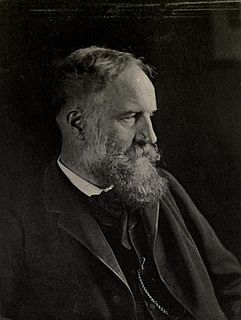A Quote by Philip Gilbert Hamerton
Society will be obeyed; if you refuse obedience, you must take the consequences. Society has only one law, and that is custom. Even religion itself is socially powerful only just so far as it has custom on its side.
Related Quotes
The whole drift of our law is toward the absolute prohibition of all ideas that diverge in the slightest form from the accepted platitudes, and behind that drift of law there is a far more potent force of growing custom, and under that custom there is a natural philosophy which erects conformity into the noblest of virtues and the free functioning of personality into a capital crime against society.
Surely all Americans have the right to give their money only to those causes which they support. But what kind of society has this created? A society where the ignorant reign. A society where enlightened must hold their tongues. A nation whose politicians must profess half-hearted devotion to an ancient fable or face the disastrous consequences of speaking their true mind.
The need to speak the truth and even to seek it for oneself is only conceivable in so far as the individual thinks and acts as one of a society, and not of any society (for it is just the constraining relations between superior and inferior that often drive the latter to prevarication) but of a society founded on reciprocity and mutual respect, and therefore on cooperation.
A dreaded society is not a civilized society. The most progressive and powerful society in the civilized sense, is a society which has recognized its ethos, and come to terms with the past and the present, with religion and science. With modernism and mysticism, with materialism and spirituality; a society free of tension, a society rich in culture. Such a society cannot come with hocus-pocus formulas and with fraud. It has to flow from the depth of a divine search.
Among the more irritating consequences of our flagrantly religious society is the special dispensation that mainstream religions receive. We all may talk about religion as a powerful social force, but unlike other similarly powerful institutions, religion is not to be questioned, criticized or mocked.
There is immunity in reading, immunity in formal society, in office routine, in the company of old friends and in the giving of officious help to strangers, but there is no sanctuary in one bed from the memory of another. The past with its anguish will break through every defense-line of custom and habit; we must sleep and therefore we must dream.








































